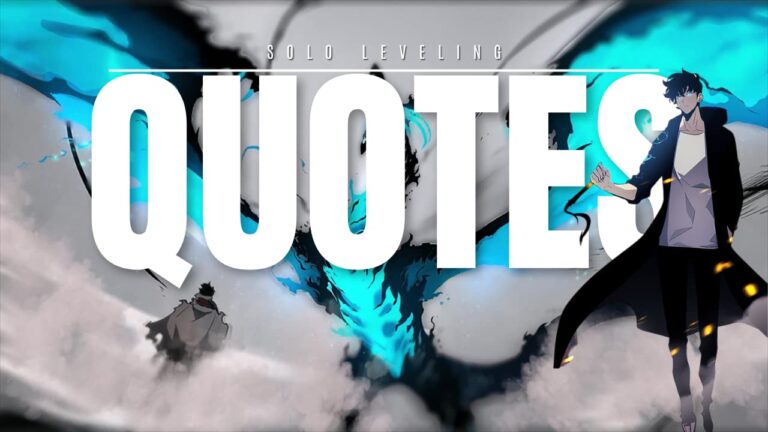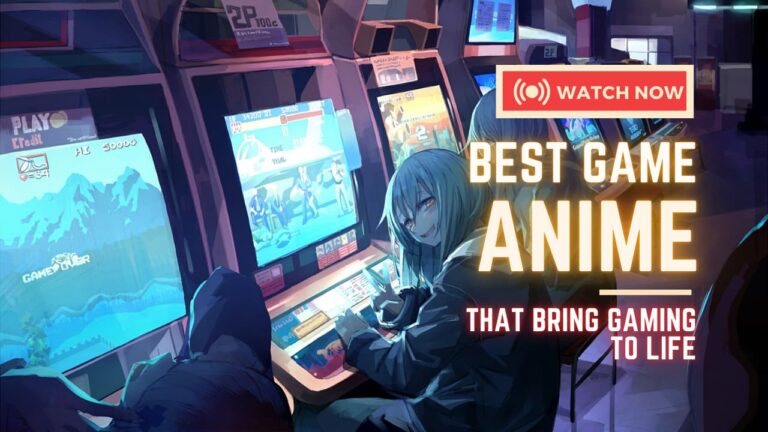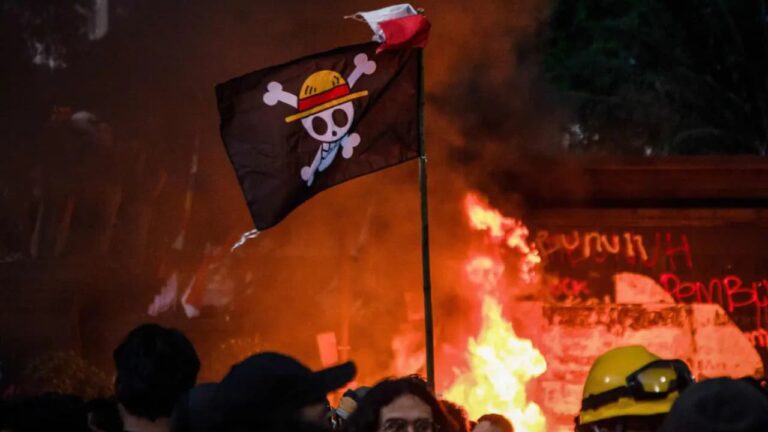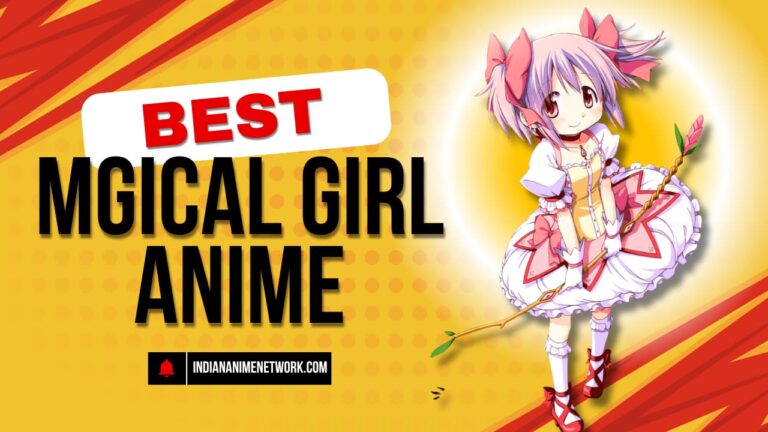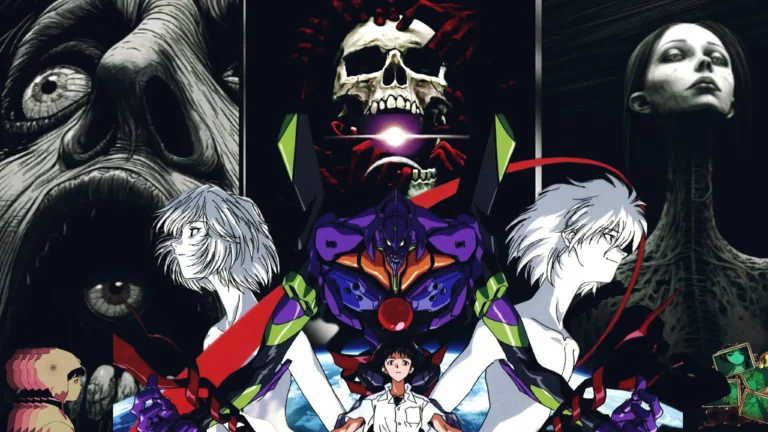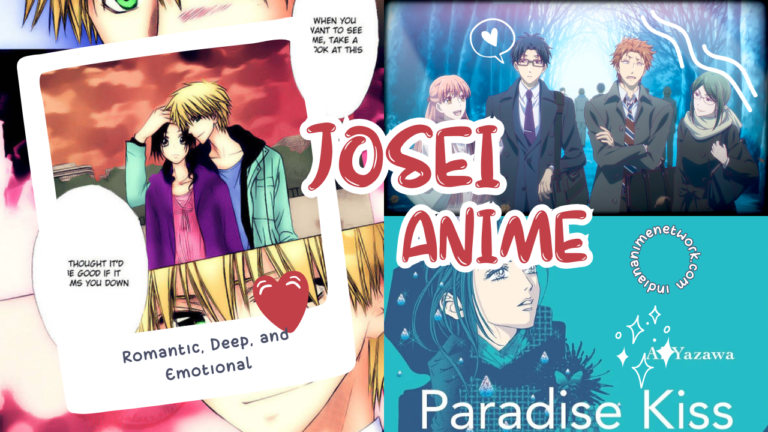16+ Sci-Fi Anime Every Fan Should Watch
Science fiction (often abbreviated as sci-fi) is a genre of speculative fiction that explores imaginative and futuristic concepts, often grounded in scientific principles or technological possibilities.
It serves as a canvas for exploring complex ideas about humanity, society, and the universe, using advanced technology, space exploration, time travel, and extraterrestrial life as narrative tools.
At its core, science fiction is about “what if” scenarios that examine potential futures, alternative realities, or unknown realms of existence.
Science fiction is a genre that does more than entertain—it invites deep reflection on the future of humanity, the ethical implications of scientific progress, and the mysteries of existence.
It forces us to confront difficult questions about technology, society, and our own nature, making it one of the most thought-provoking and versatile genres in storytelling.
Whether imagining dystopian nightmares or utopian dreams, sci-fi continually pushes the boundaries of what we think is possible, reflecting both our hopes and fears for the future.
To be concise Science fiction is such a genre that combines scientific concepts with imaginative storytelling allowing us to speculate about the possibilities of the future, explore the implications of technological advancements, and consider the impact of science on society and humanity.
Angel’s Egg(1985):
Angel’s Egg is an enigmatic and visually stunning film that stands as a noteworthy entry into the realm of sci-fi anime.
Its abstract narrative and rich, symbolic imagery create a hauntingly beautiful experience, exploring themes of existence, faith, and the search for meaning.
Set in a desolate, post-apocalyptic world, Angel’s Egg follows the story of a young girl and a mysterious man who encounter each other amidst the ruins of a crumbling civilization.
The girl, who is solely identified as The Girl, carries an enormous, fragile egg that she seems to protect with an almost sacred reverence.
The narrative unfolds with a dreamlike quality as the girl navigates a surreal landscape, accompanied by the enigmatic The Man who offers cryptic guidance and unsettling insights.
One of the central themes of Angel’s Egg is the search for meaning in a world that appears devoid of purpose.
The girl’s journey with the egg symbolizes the quest for understanding and the struggle to find hope in a seemingly barren and desolate world.
The film reflects on the nature of belief and the concept of faith, as encapsulated in the quote, “In the absence of light, we search for the divine.”
Visually, Angel’s Egg is renowned for its striking and hauntingly beautiful art style. The film employs dark, gothic imagery and dreamlike sequences to create a pervasive sense of mystery and unease.
The backgrounds are meticulously detailed, reflecting a world that is both eerie and captivating. The use of shadow and light enhances the film’s otherworldly atmosphere, immersing viewers in its enigmatic world.
Trigun(1998):
Set in a post-apocalyptic desert world, the series blends elements of Westerns and science fiction, offering a rich and multifaceted exploration of morality & redemption.
“Everyone is a prisoner of their own past, but the key to freedom lies in how we deal with it.”
Trigun is set on a barren planet, where humanity struggles to survive in a desolate landscape reminiscent of the Wild West.
The story centers on Vash the Stampede, a legendary gunslinger known for his immense skill and the mysterious bounty on his head.
As Vash journeys through this harsh world, he encounters various characters and confronts both personal demons and external threats.
The core of the narrative revolves around the juxtaposition of Vash‘s apparent carelessness and his underlying, profound sense of morality.
The series questions the efficacy and consequences of violence through its portrayal of Vash’s pacifist philosophy against the backdrop of a brutal world.
This is encapsulated in the quote: “If you want to know where the world’s going, look at the people who are in charge.” This reflects the series’ critique of societal and moral corruption.
Another significant theme is the exploration of identity and legacy. As Vash confronts his past and the implications of his actions, the narrative delves into how personal history shapes one’s present and future.
The enigmatic figure of Knives Millions represents a darker counterpoint to Vash, embodying the destructive potential of unchecked power and ideology.
In short, Trigun is a story about how a legendary gunslinger confronts both his personal demons and societal chaos.
Metropolis(2001):
“A world without a heart. The people who live there don’t have a soul.”
Metropolis unfolds in a sprawling, technologically advanced metropolis where society is starkly divided between the opulent elite and the downtrodden masses.
The narrative centers on Tima, a highly advanced robot with a mysterious origin, and Kenichi, a young boy who becomes entangled in her quest for self-discovery.
As Kenichi and Tima navigate the city’s intricate layers, they uncover a conspiracy that threatens the balance of their world. Set in a futuristic city, the film offers a nuanced commentary on technology, class disparity, and human identity.
At its heart, Metropolis interrogates the ethical implications of technology and its impact on human society.
The divide between the privileged and the oppressed is starkly portrayed, emphasizing the consequences of technological progress when not tempered by ethical considerations.
Tima’s journey reflects a deeper inquiry into what it means to be human, as her advanced design challenges the boundaries between artificial intelligence and human consciousness.
The narrative poignantly questions, “Can a machine have a soul if it possesses the capacity to dream?”, which only encapsulates the film’s exploration of artificial sentience and the moral dilemmas associated with creating life-like beings.
The film also delves into political and social commentary, using its setting to critique the impact of industrialization and the inherent power struggles within society.
The city of Metropolis serves as a metaphor for the broader societal issues, illustrating how technological advancements can exacerbate class divides and social unrest.
“In the shadows of progress, the divide between the haves and have-nots grows ever wider,” captures the film’s critical view of the societal implications of unchecked technological growth.
Ergo Proxy(2006):
“The truth is meaningless when you refuse to face it,”
Ergo Proxy is a dystopian science fiction anime that delves deeply into questions of identity, consciousness, and free will.
Set in a post-apocalyptic world where humans and androids (AutoReivs) coexist in isolated domed cities, the narrative explores the existential crises of its unique character, Re-l Mayer, as she confronts the enigmatic Proxies.
Re-l Mayer, a key figure in unraveling the mystery behind the enigmatic Proxies, serves as both an investigator and a symbolic observer of the human condition.
Her journey into the unknown reveals the darker side of humanity’s reliance on technology and the fragile balance between control and freedom.
Through her perspective, the series delves into themes of identity, memory, and the burden of self-awareness, questioning what it means to be truly “alive” in a world shaped by artificial constructs.
The world-building is one of Ergo Proxy’s strongest suits, with the decaying city of Romdo reflecting a society that clings to order while on the brink of collapse.
The Proxies, god-like beings with the power to create and destroy, symbolize the duality of creation and destruction within the narrative.
They are both saviors and threats, embodying the show’s overarching theme of humanity’s struggle against its own nature.
Ergo Proxy explores technological dependence and the moral consequences of genetic manipulation and artificial intelligence.
The AutoReivs, androids that develop self-awareness, reflect the blurring line between humans and machines.
The show’s take on AI is not just a technical exploration but a philosophical one, asking profound questions about the ethics of creating life and the boundaries of sentience.
True to the sci-fi genre, the slow-burn narrative, while sometimes ambiguous, is richly layered, making it a standout in sci-fi anime for its intellectual depth.
Code Geass(2006):
“I’m not the hero who will save everyone. I’m just someone who’s trying to make a difference.”
In a world dominated by political machinations and advanced mecha technology, Code Geass delves into the complex interplay between power and rebellion.
The narrative follows Lelouch as he uses his newfound abilities to incite a revolution against the oppressive Britannian regime.
The anime’s setting—a futuristic world with a highly developed, technologically advanced society—serves as a backdrop for its exploration of themes such as freedom, justice, and sacrifice.
Code Geass excels in intricately weaving elements of mecha warfare, political intrigue, and psychological drama into a compelling narrative.
The narrative is driven by Lelouch’s quest for vengeance and justice, which is marked by a relentless pursuit of his ideals at the expense of his own morality.
The anime poses challenging questions about the nature of leadership and the sacrifices required for revolutionary change.
“The only ones who should kill are those who are prepared to be killed.”, Encapsulates the series’ examination of the harsh realities and sacrifices inherent in the pursuit of power and revolution
The series is rooted in sci-fi through its depiction of advanced robotics and supernatural abilities. The mechas, known as Knightmares, are central to the series’ action, showcasing futuristic technology and strategic warfare.
The Geass ability, while more fantastical, introduces a unique twist on the concept of mind control, pushing the boundaries of scientific imagination and moral questions.
The ending of Code Geass: Lelouch of the Rebellion is both provocative and thought-provoking, offering a resolution that resonates deeply with the series’ exploration of power, sacrifice, and redemption.
Without giving away specifics, the conclusion serves as a culmination of Lelouch’s complex journey, addressing the consequences of his revolutionary actions and the intricate web of moral choices he has navigated.
Darker than Black(2007):
“The price for power is the soul itself.”
Darker than Black is a striking example of sci-fi anime that blends espionage, superhuman abilities, and a bleak view of human evolution.
Set in a world where mysterious “gates” appear, altering the laws of physics, the anime introduces a race of enhanced humans called Contractors, who gain powers at the cost of their emotions.
The narrative revolves around the consequences of these abilities, diving deep into the ethics of power, free will, and the transformation of human nature.
Contractors must perform bizarre “payments” after using their powers, symbolizing the price of unnatural evolution, an intriguing twist that stays true to the sci-fi genre’s tendency to explore human limitations and ethical boundaries.
At the center of this world is Hei, a morally ambiguous Contractor who navigates the shady underworld while questioning his own existence.
The character embodies the thematic duality of the series: the fine line between humanity and machine-like coldness.
Hei’s journey through deception and betrayal is a reflection of the overarching narrative that questions whether the loss of emotion is worth the acquisition of power.
The show’s world-building is rich, with layers of mystery surrounding the origin of the Contractors and the purpose of the Gates.
These elements give the series a gritty, noir-like atmosphere, blending traditional espionage with the speculative concepts of evolutionary change.
Its focus on secrecy and manipulation is reminiscent of classic sci-fi narratives where humanity is caught in a web of larger, often uncontrollable forces.
Visually, Darker than Black complements its heavy themes with a subdued, almost melancholic aesthetic. The dark urban landscapes and shadowy figures mirror the internal struggles of its characters, enhancing the show’s atmosphere.
A Certain Scientific Railgun(2009):
A Certain Scientific Railgun is a standout in the sci-fi genre, blending superhuman abilities and scientific experimentation within the technologically advanced Academy City, where espers and cutting-edge research coexist.
The series tackles important themes such as ethics in scientific progress, personal responsibility, and the consequences of wielding power, all of which are central to the narrative.
At its heart is Mikoto Misaka, a Level 5 esper, whose journey showcases the tension between possessing immense power and understanding the moral obligations that come with it.
Throughout the series, Mikoto grapples with the consequences of technological misuse, particularly in the Level Upper arc, where people seek power without considering the potential damage it can cause.
The arc serves as a cautionary tale about the dangers of irresponsible power-seeking, as those who attempt to artificially enhance their abilities often harm themselves and others in the process.
The Sisters’ Arc takes this exploration even further, focusing on the ethical dilemmas of cloning and human experimentation. The city’s scientific elites create clones of Mikoto for combat research, treating these “Sisters” as mere tools without rights.
Mikoto, deeply affected by the knowledge of these experiments, takes it upon herself to end the inhumane practices. Her journey to wield her powers responsibly, rather than recklessly, drives much of her character development.
As Mikoto comes to realize, “Even if you have power, that doesn’t mean you can wield it however you want.”
This quote encapsulates one of the series’ central messages: that true strength lies not in having power, but in using it wisely and ethically.
Steins; Gate (2011):
Set in a near-future Tokyo, Steins;Gate follows a group of friends who inadvertently discover a method to send messages into the past, leading to unintended consequences that unravel their lives and the fabric of reality.
The central figure, Rintarou Okabe, a self-styled “mad scientist,” becomes entangled in a web of time paradoxes and alternate timelines as he grapples with the moral implications of altering the past.
The series excels in its portrayal of time travel as a complex and often perilous concept.
It presents a meticulous exploration of causality, fate, and the butterfly effect, emphasizing how even minor changes in the past can have profound and unpredictable consequences in the present.
The narrative’s strength lies in its ability to blend scientific accuracy with emotional depth, creating a story that is both intellectually stimulating and profoundly affecting.
“The universe has a beginning, but it has no end. It is only the end of the universe we know that is certain,” encapsulates the series’ thematic exploration of the infinite possibilities and potential consequences of time manipulation.
The narrative delves into the ethical and emotional ramifications of altering time, reflecting on how such changes can impact human relationships and personal identity.
“In a world where everything can be changed, there are still things that are constant, and it’s those constants that we must cling to,” reflects the series’ meditation on the balance between the mutable and immutable aspects of existence.
This philosophical underpinning adds a layer of depth to the sci-fi narrative, making it a standout example of the genre.
The series emphasizes how love can be a source of emotional strength and resilience. Kurisu Makise’s relationship with Okabe illustrates how love provides solace and motivation even in the face of seemingly insurmountable challenges.
For Okabe Rintarou, his love for his friends and his desire to protect them from the consequences of their time-travel experiments are central to his actions.
This love compels him to endure immense personal suffering and to navigate complex timelines to ensure their safety.9.303102907.
Fun fact even in 2024, this series still tops the list as the most satisfactory anime in AniKore (Japanese version of MAL). So if you haven’t watched the series yet, maybe it’s time you go watch it.
God Eater(2015):
“Every battle we fight, every life we sacrifice, is a step towards reclaiming our future.”
God Eater is a notable entry in the sci-fi genre, distinguished by its high-stakes narrative and visceral exploration of bioengineering and post-apocalyptic survival.
Set in a future devastated by monstrous creatures known as Aragami, the series focuses on humanity’s fight for survival using advanced, genetically engineered weapons called God Arcs.
In a world ravaged by constant attacks from the Aragami, the story follows the God Eaters—elite warriors equipped with powerful weapons designed from the Aragami themselves.
The protagonist, Hikaru, and his comrades engage in relentless battles to protect the remnants of human civilization.
The setting is a grim, dystopian landscape where survival is a daily struggle, and the lines between humanity and monstrosity are often blurred.
The narrative is driven by intense action and emotional depth, delving into the psychological toll of fighting relentless monsters and the moral complexities of using enemy DNA as weapons.
Characters grapple with their own humanity while wielding these powerful tools, reflecting the series’ thematic exploration of identity and survival.
“To survive, we must become what we once feared,” further elaborates on the internal and external conflicts faced by the characters.
As an adaptation of a popular video game series, it benefits from an existing fanbase and the excitement of seeing beloved game elements brought to life in anime form.
Its exploration of bioengineering, morality, and the human condition, set against a dramatic, post-apocalyptic backdrop, contributes to its significant impact and appeal above all.
Made In Abyss(2017):
“To ascend means suffering, and to descend means losing yourself.”
Made in Abyss stands as a rare gem in the sci-fi genre, blending the wonder of discovery with unsettling horror.
The anime’s premise revolves around an enormous pit known as the Abyss, which houses relics and secrets from a lost civilization.
Its true sci-fi brilliance lies in its exploration of bioethics and evolution, as adventurers, driven by curiosity, delve deeper into this dangerous and unknown world, confronting the physiological and psychological toll it exacts on them.
The narrative follows Riko, a girl who dreams of exploring the Abyss and discovering its mysteries, along with Reg, a boy with mysterious origins and extraordinary abilities.
Together, they embark on a perilous journey that not only tests their survival skills but challenges their understanding of humanity and technology.
The show’s stunning visuals, while beautiful, often mask the darker undertones of its exploration—scientific curiosity pushed to its extreme, and the ethical consequences of tampering with the unknown.
The Abyss itself becomes a character, embodying the eternal allure of the unknown, with the quote, “The Abyss is both a miracle and a curse,” underscoring its dual nature.
As Riko and Reg descend, they encounter creatures and situations that question the limits of human morality, evolution, and survival instincts.
The Abyss is a reflection of human ambition, both wondrous and horrific, making Made in Abyss a profound commentary on the dangers of seeking knowledge at any cost.
Its unflinching portrayal of scientific curiosity and the emotional, physical, and moral sacrifices involved makes it a truly evocative sci-fi narrative that lingers long after the journey ends.
Kokkoku(2018):
“Kokkoku” delivers a unique and gripping sci-fi narrative through its exploration of time manipulation and the profound ethical dilemmas it creates.
At the heart of the story is Juri Yukawa, who becomes entangled in the mystical realm known as the Stasis—a world where time is frozen, yet certain individuals can move freely.
This realm introduces a fascinating twist on conventional sci-fi, blending supernatural elements with philosophical depth.
When Juri’s family is kidnapped, she must use the power of the Stasis to save them. However, the Stasis, governed by the enigmatic Kourou, raises thought-provoking questions about the nature of power and its consequences.
The show’s exploration of time manipulation is both intellectually stimulating and morally challenging, as it forces viewers to confront the dangers of controlling time and altering reality.
“Time waits for no one, except for those who command it,” the juxtaposition of time’s relentless passage against the ability to manipulate it; the ability to command time creates a paradox: while time remains unyielding in the normal world, those who gain control over it can alter their reality within the Stasis.
What sets Kokkoku apart from other sci-fi series is its focus on the metaphysical and existential dimensions of time, rather than relying on advanced technology or space exploration.
The concept of the Stasis, where time is halted but manipulable, is a fresh and compelling narrative device.
It allows for a deeper examination of the moral implications of wielding such power, making the show both original and thought-provoking.
Furthermore, Kokkoku integrates supernatural elements into its sci-fi framework, introducing an esoteric dimension that adds complexity to the narrative.
This fusion creates a hybrid genre experience, rich in moral and philosophical exploration, setting it apart from more conventional sci-fi shows that often shy away from such introspection.
Dr. Stone(2019):
Dr. Stone is a compelling entry in the sci-fi genre that celebrates the spirit of scientific discovery and human ingenuity. The anime begins with a mysterious global phenomenon that petrifies humanity, leaving behind a world ripe for scientific revival.
At the heart of this post-apocalyptic saga is Senku Ishigami, a brilliant young scientist whose awakening marks the beginning of humanity’s quest to rebuild civilization from scratch.
The narrative of Dr. Stone is driven by its meticulous focus on the scientific process, emphasizing methodical experimentation and technological progression.
Unlike many sci-fi works that lean heavily on speculative fiction or fantastical elements, this series grounds its plot in real-world science, exploring topics like chemistry, engineering, and biology with an impressive degree of accuracy.
The anime’s unique approach to portraying scientific principles as the key to overcoming adversity is encapsulated in Senku’s declaration: “With science, we can conquer anything!”
This ethos underscores the series’ commitment to portraying science as both a tool and a symbol of hope.
The story unfolds as Senku, alongside his ally Taiju Oki, seeks to harness the power of science to reverse the petrification and rebuild society.
They face both the challenges of a new world and the remnants of human conflict. The inclusion of Tsukasa Shishio, a formidable antagonist with a vision at odds with Senku’s, adds a layer of ideological conflict that enriches the narrative.
Tsukasa’s belief in returning to a more primal form of society contrasts sharply with Senku’s scientific optimism.
The anime’s compelling narrative is complemented by its engaging depiction of scientific discovery as both a struggle and a triumph.
With its balance of intellectual rigor and dramatic storytelling, Dr. Stone stands out as a thought-provoking and optimistic exploration of science’s role in shaping the future.
Cyberpunk: Edgerunners(2022):
Cyberpunk: Edgerunners delivers a visceral dive into a dystopian future marked by cybernetic augmentation, corporate corruption, and the stark disparity between power and poverty.
Set in the neon-lit world of Night City, the series follows David Martinez, a street-smart young man who becomes entangled in a perilous underworld of mercenaries and cyber-enhanced combatants after acquiring powerful cyberware.
The narrative is driven by a raw exploration of survival in a city where humanity is commodified and the lines between man and machine are increasingly blurred.
The plot, while focused on high-octane action and visceral thrills, is underpinned by a poignant commentary on the loss of identity and humanity in the face of relentless technological advancement.
As David descends deeper into the edgerunner lifestyle, the series vividly portrays the cost of ambition and the dark allure of technological escape, often echoing the sentiment that in such a world, “To survive in this city, you must lose a piece of yourself.”
The anime excels in its portrayal of a world where cybernetics and corporate greed dictate the terms of existence, painting a vivid picture of societal fragmentation and personal desperation.
The tension between technological enhancement and human vulnerability is palpable throughout, encapsulated by the harrowing quote: “In a city of dreams, the most frightening thing is waking up to reality.”
This exploration of existential dread and the pursuit of autonomy amidst a fractured society remains central to its narrative.
In essence, Cyberpunk: Edgerunners serves as a narrative expansion of the Cyberpunk 2077 universe, offering new perspectives and deeper exploration of its themes.
It stands as a testament to the rich, immersive world crafted by CD Projekt Red, enhancing the overall experience for both players and viewers alike.
Heavenly Delusion(2023):
Heavenly Delusion offers a compelling dive into the post-apocalyptic realm of genetic experimentation and biological manipulation, framed within a narrative that blends scientific curiosity with existential dread.
The series unfolds in a world where humanity is grappling with the aftermath of a mysterious event that has left the planet in ruin.
Here, advanced genetic technologies have led to profound and often disturbing changes in human and non-human life forms.
The story follows Maru and Kiruko, two protagonists navigating this chaotic world as they search for a fabled sanctuary.
Their journey is not merely a quest for safety but an exploration of the ethical and existential implications of genetic tampering.
The anime meticulously examines how these advancements, intended to improve or control life, often lead to unforeseen consequences and moral dilemmas.
The narrative is enriched by the eerie and somber atmosphere that underscores the unpredictability of human experimentation and its impact on society.
Central to the series is its exploration of biological ethics and human evolution, depicted through a lens of dystopian realism.
The ethical quandaries surrounding genetic manipulation are articulated through chillingly resonant lines such as, “In our pursuit of perfection, we have become our own tormentors.”A stringent comment reflecting on the thematic core, probing the dark side of human innovation and its repercussions.
Heavenly Delusion distinguishes itself with its introspective narrative and its candid exploration of the darker aspects of scientific advancement.
The series vividly depicts a world where humanity’s efforts to push beyond natural boundaries lead to significant existential trials, underscoring its significance within the sci-fi genre.
Pluto(2023):
“To be conscious is to be aware of one’s own existence; is that not enough to grant us humanity?”
Pluto reimagines the classic manga Astro Boy with a profound sci-fi narrative that delves into the complexities of artificial intelligence and human-machine relationships.
The series navigates a world where advanced robotics are integrated into daily life, blending technological wonder with deep philosophical inquiry.
The plot follows Atom, an advanced robot with human-like emotions, as he investigates a series of mysterious robot and human deaths.
The narrative intricately weaves together themes of consciousness, morality, and identity, presenting a world where the line between human and machine is increasingly blurred.
\The anime does more than explore the mechanics of robotics; it delves into the very essence of what it means to be sentient.
Central to the series is the ethical dilemma surrounding artificial intelligence and the potential for machines to possess emotions and self-awareness.
The exploration of these themes is poignantly encapsulated as“In a world where machines can feel, what becomes of human uniqueness?”
This quote captures the essence of the series’ existential musings, reflecting on how advanced AI challenges traditional notions of identity and humanity.
Pluto stands out not only for its homage to classic science fiction but also for its innovative approach to the genre. By blending philosophical depth with a gripping detective narrative, it offers a fresh and introspective look at the future of robotics.
The series firmly establishes itself as a significant work within the sci-fi genre, raising thought-provoking questions about the nature of consciousness and the ethical implications of technological advancement.
Kaiju No. 8(2024):
Kaiju No. 8 presents a thrilling blend of military science fiction and biological enhancement, immersing viewers in a world where humanity battles colossal, otherworldly creatures.
Set in a Japan ravaged by giant monsters known as Kaiju, the series follows Kafka Hibino, a disillusioned former soldier who unexpectedly gains the ability to transform into a Kaiju himself.
The narrative revolves around Kafka’s transformation and his struggle to reconcile his monstrous new form with his deep-seated desire to protect humanity.
As Kafka joins the ranks of elite Kaiju-fighting forces, the series explores themes of identity, power, and the ethical ramifications of transformation.
The juxtaposition of Kafka’s internal conflict with the external threats he faces provides a rich exploration of the human condition under extreme circumstances.
The anime’s engaging storyline is driven by its unique premise, where human and Kaiju interactions challenge conventional notions of good and evil.
Kafka’s journey embodies the conflict between his humanity and his monstrous form, reflecting deeper questions about what it means to fight for survival.
This tension is encapsulated in the quote, “To fight the monsters, we must confront the monsters within ourselves.” This line resonates with the series’ central theme of self-discovery amid chaos.
Kaiju No. 8 excels in its portrayal of a world where biological evolution and warfare intersect, creating a gripping narrative filled with both action and philosophical reflection.
Its fresh take on the genre, combined with a profound exploration of identity and transformation, establishes it as a significant entry into the sci-fi realm.
The series invites viewers to ponder the nature of humanity and the cost of survival in a world overrun by monstrous threats.


